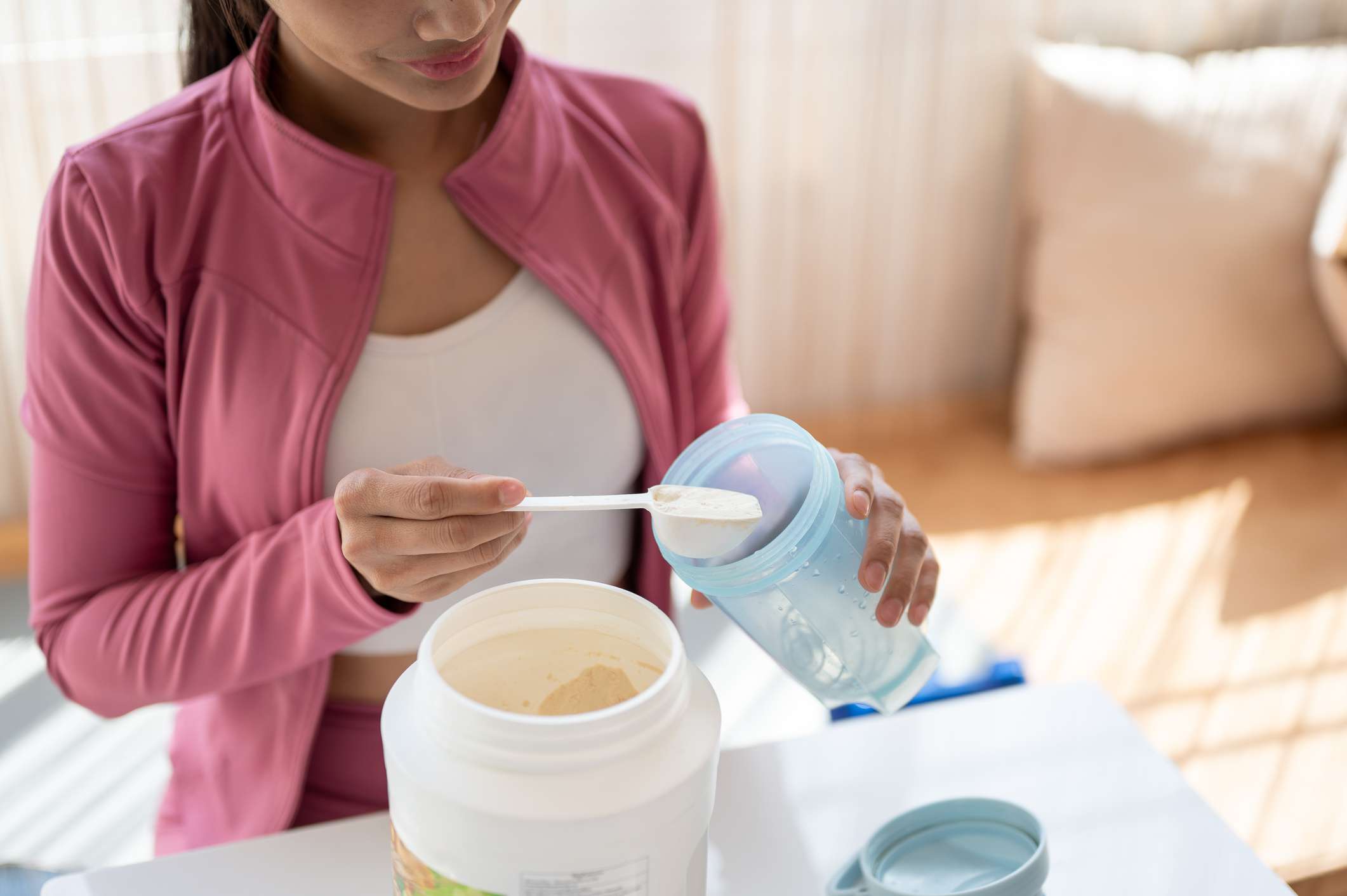
Creatine is a dietary supplement that’s commonly used to enhance exercise performance and improve body composition.
Though creatine is considered one of the safest and most well-researched dietary supplements, some people may wonder if creatine is linked to any health concerns or triggers side effects.
Creatine is a naturally occurring compound that’s found in your body. About 95% of your body’s creatine is stored in your muscles, with smaller amounts found in the tissues of the brain, heart, and testicles.
Creatine plays a critical role in energy production. It’s the primary fuel source used to replenish adenosine triphosphate (ATP) in cells. ATP is a molecule that provides energy for cellular functions that support processes such as nerve function and muscle contraction.
Your body makes creatine from the amino acids glycine, arginine, and methionine, which provide about half of your daily creatine needs. The rest must be obtained by eating foods rich in creatine, like meat and fish, or taking creatine supplements.
Studies suggest that most people need to consume 2-4 grams of creatine per day through food or supplements to support optimal health. Creatinine helps supply your muscles with energy, so it’s popular amongst those looking to improve muscle strength and athletic performance.
Creatine supplements, including creatine monohydrate, are used to enhance athletic performance and increase muscle mass and strength.
Research shows that creatine supplements improve body composition and muscle strength in several populations, including athletes and older adults.
One review found that combining resistance training with creatine supplementation was more effective for increasing muscle growth in younger and older people than resistance training combined with a placebo treatment. However, the review found that creatine seemed more effective in younger people.
Creatine has also been shown to enhance athletic performance, including endurance and power. Creatine could also support health in other ways, such as enhancing fat loss, reducing blood sugar levels, and improving cognitive health.
Creatine supplements are widely considered safe and aren’t linked to serious health concerns. However, taking creatine may lead to a few side effects, especially when taken in high doses.
Side Effects
When taken in doses of 20 grams per day, creatine may lead to water retention, the most common side effect of creatine supplementation. When taken in doses higher than 10 grams per day, it can also trigger gastrointestinal symptoms like diarrhea.
These side effects are related to taking high doses of creatine, which is why it’s often recommended to take smaller daily doses, such as 3-5 grams per day, and to split creatine into multiple doses throughout the day.
Creatine can also temporarily increase blood levels of creatinine, a waste product created when the body breaks down creatine. Creatinine is used as a marker of kidney function, as levels rise when the kidneys are compromised. However, creatine use only temporarily raises creatinine levels and has not been shown to negatively affect kidney health or function when consumed in recommended doses.
Though there’s no evidence to suggest that creatine harms kidney health, if you have kidney disease or a health condition that impacts kidney function, speak with your healthcare provider before adding any new supplement to your routine, including creatine.
How It Affects Certain Populations
Certain populations should be especially cautious when using creatine. For example:
- While creatine has been studied in children and adolescents, you shouldn’t give creatine supplements to children or teens unless a healthcare provider clears it.
- Though research is inconclusive, creatine supplementation may also potentially worsen symptoms of mania in people with bipolar disorder.
- Creatine is thought to be safe for pregnant and breastfeeding women, but its use hasn’t been studied in these populations.
Creatine is generally considered safe and isn’t associated with serious side effects or health risks. However, if you have a medical condition, are pregnant or breastfeeding, or are concerned about potential side effects related to creatine supplementation, it’s best to speak with a qualified healthcare provider familiar with creatine supplementation before taking creatine.
Creatine doesn’t seem to interact with many medications or dietary supplements, but there are some considerations.
Some evidence suggests that chronic (long-term) caffeine consumption may reduce some of creatine’s benefits, such as its effects on exercise performance. This may be due to the different effects of caffeine and creatine on muscle relaxation time. More research is needed to fully understand how creatine and caffeine interact in the body.
There have been some reports of combinations of creatine and stimulants like ephedra triggering serious health conditions, but these side effects were likely related to the stimulants, not creatine.
In one older case study, a 33-year-old man suffered a stroke after consuming high doses of MaHuang (ephedra) extract and creatine monohydrate. Ephedra is a stimulant that was banned in the United States in 2004 due to serious safety risks linked to ephedra, including heart attack and stroke.
Creatine seems to be generally safe to use with other medications and supplements. That said, its use hasn’t been studied with all medications and it’s possible that creatine isn’t safe to take with every drug or dietary supplement. It’s best to speak with a healthcare provider before starting new supplements.
Creatine is a compound that helps supply energy to muscles. Supplements containing creatine have been shown to improve sports performance and body composition and may support other aspects of health as well.
Overall, creatine is considered a safe supplement and isn’t associated with serious side effects or health concerns. However, although creatine is safe, it’s best to check with your healthcare provider before taking creatine if you have any health conditions or are taking medications.
